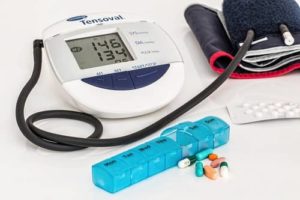Understanding Hypertension: Causes, Symptoms, and Practical Management
Hypertension Explained
Hypertension, commonly known as high blood pressure, is a widespread cardiovascular condition that affects millions of individuals worldwide. It is a chronic medical condition characterized by elevated blood pressure levels.
Understanding the causes, recognizing the symptoms, and implementing practical management strategies are crucial for maintaining optimal health.
Causes of Hypertension
Hypertension can result from various factors, including:
- Poor dietary choices, especially high salt intake.
- Lack of physical activity and a sedentary lifestyle.
- Genetic predisposition and family history.
- Stress and chronic psychological factors.
- Excessive alcohol consumption.
Recognizing the Symptoms

One challenging aspect of hypertension is that it often doesn’t present noticeable symptoms until it reaches a severe stage. However, some individuals may experience:
- Headaches
- Shortness of breath
- Dizziness
- Chest pain
- Visual disturbances
It’s essential to note that these symptoms can be indicative of other health issues as well. Regular blood pressure monitoring is key for early detection.
Practical Management Strategies
Managing hypertension effectively often involves a combination of lifestyle changes and, in some cases, medication. Here are practical strategies for controlling high blood pressure:
- Healthy Diet: Adopt a diet rich in fruits, vegetables, lean proteins, and whole grains. Reduce salt and processed foods intake.
- Regular Exercise: Engage in at least 150 minutes of moderate-intensity exercise per week, such as brisk walking or swimming.
- Weight Management: Maintain a healthy weight or lose weight if necessary. Even modest weight loss can have a significant impact on blood pressure.
- Stress Reduction: Practice stress-reduction techniques like meditation, deep breathing, or yoga.
- Limit Alcohol: If you drink, do so in moderation. Excessive alcohol can raise blood pressure.
- Quit Smoking: Smoking damages blood vessels and increases the risk of hypertension.
- Medication: In some cases, medication prescribed by a healthcare provider may be necessary to control blood pressure.
Preventing Hypertension

Prevention is the best approach to managing hypertension. Even if you haven’t been diagnosed with high blood pressure, adopting a healthy lifestyle can significantly reduce your risk:
- Regular Check-ups: Visit your healthcare provider for routine check-ups and blood pressure monitoring.
- Healthy Diet Choices: Start early by making nutritious food choices and reducing salt intake.
- Active Lifestyle: Encourage physical activity and limit sedentary behaviors in children and adolescents.
- Family History Awareness: Be aware of your family’s hypertension history and take proactive steps to mitigate risk.
Regular Blood Pressure Checks
It’s essential to emphasize the importance of regular blood pressure checks for both prevention and early detection. High blood pressure can be managed effectively when identified early.
Taking Control of Your Health

Hypertension is a common but manageable condition. By understanding its causes, recognizing symptoms (when present), and implementing practical management strategies, you can take control of your health and reduce the risk of complications associated with high blood pressure.
Remember that hypertension management is a lifelong journey. Consult with your healthcare provider to create a personalized plan that aligns with your specific needs and health goals.
